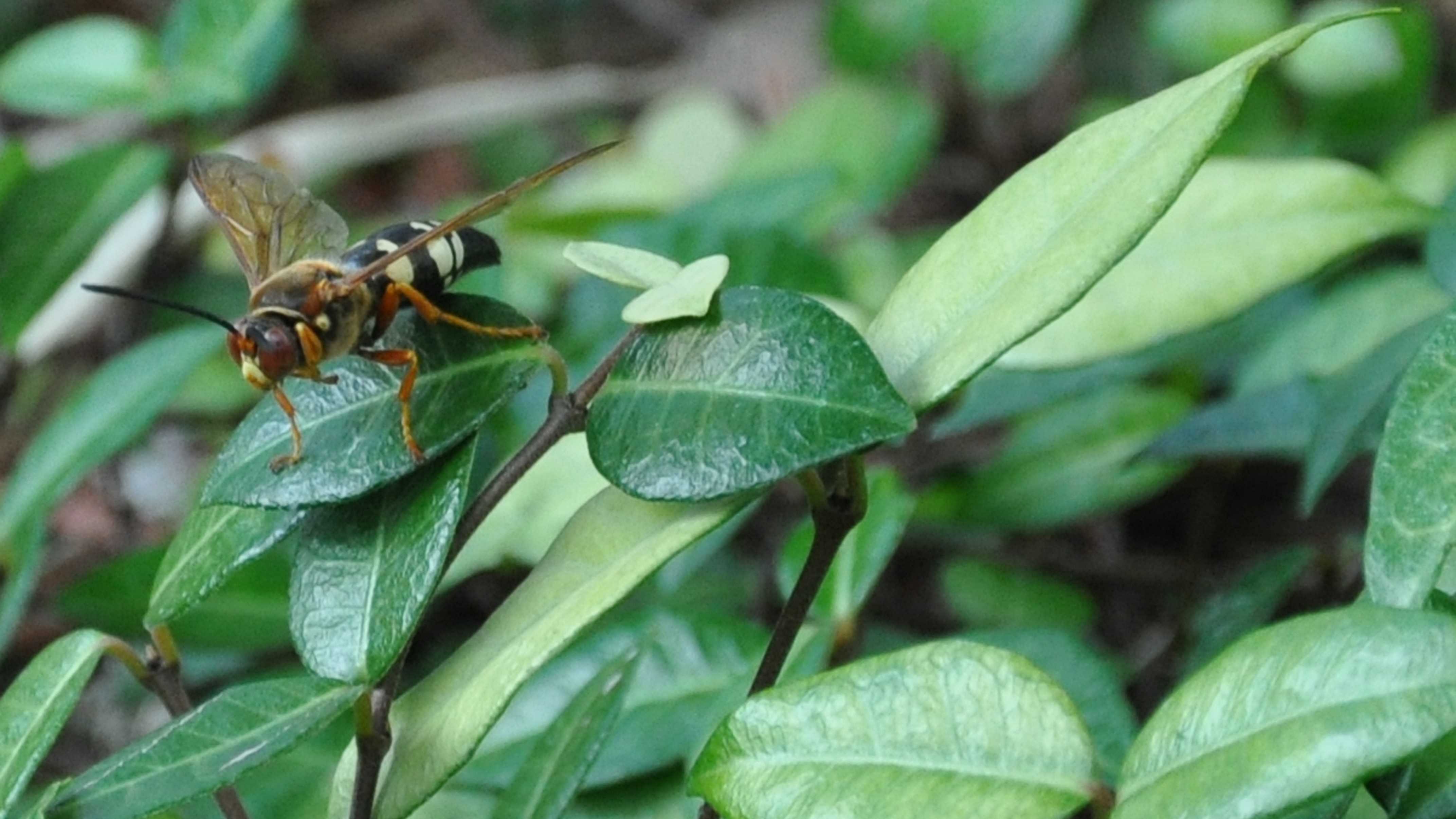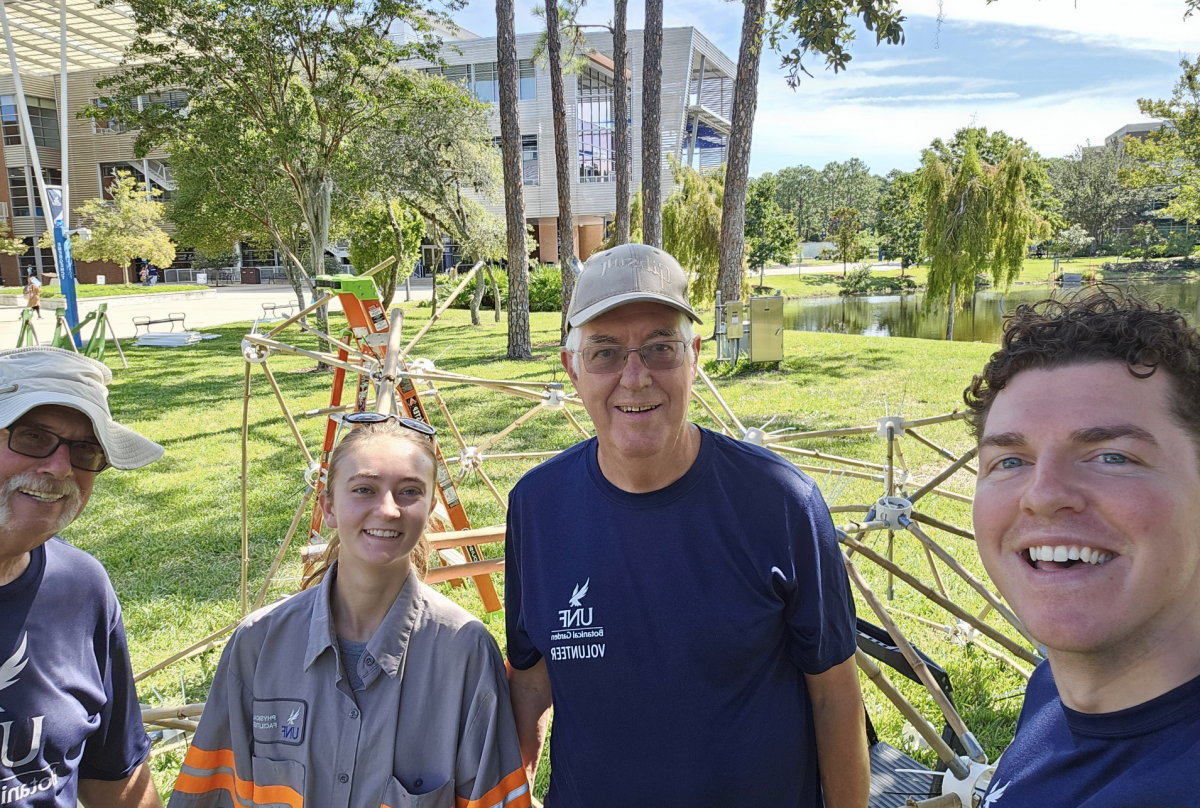
Photo by Andrea Aribe
As finals week approaches, busy UNF students can be found bustling throughout campus. However, students might become concerned about what comes buzzing in their pathway.
Cicada killer wasps have been spotted on campus and are beginning to worry UNF faculty and staff. These digger wasps are black to reddish brown marked with yellow stripes. They have brown wings and can grow up to two inches long.
Charles Hubbuch, assistant director of UNF physical facilities, landscape and grounds, said the wasps have been around since before UNF was built and they usually emerge during the summer. They like sandy soils and warm dry places, he said.
He said the wasps might fly up in front of you, but they are not going to attack.
“These are the males just trying to use their shape, size and color to intimidate animals that might step on their nest or harass them,” Hubbuch said.
The males do not have stingers and hover over their burrows to protect the females and eggs inside. The females do have a stinger, but Hubbuch said students mostly see male wasps flying around campus, and he’s never heard of anyone being stung.
“I think the only way you would be stung is if you stepped on one or grabbed it,” he said.
While the wasps can be found hovering over several raised planters on campus, Hubbuch said most people see them at the UNF Student Union.
“I know we get calls from time to time. People insist that we get rid of them that we kill them, but we don’t do that,” Hubbuch said.
UNF Student Union Director David Crabtree said he sent tenants an email concerning the wasps to allay fears that were being expressed.
“I’ve been working here for a couple of years, and I have never seen this many,” said Patrick Enos, Chartwells supervisor. “They don’t sting, but this is kind of ridiculous. They should get rid of them.”
Hubbuch said more and more people are spending their time indoors, and if students took the time to look and enjoy nature, it could be considered part of the education on campus.
“Our policy towards nature is to encourage it, and if not encourage it, then at least do no harm,” he said.
Hubbuch said students should be more worried about mosquitoes than the cicada killer wasps, which are actually beneficial because they control insects that would feed on the plants and damage the trees.







